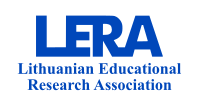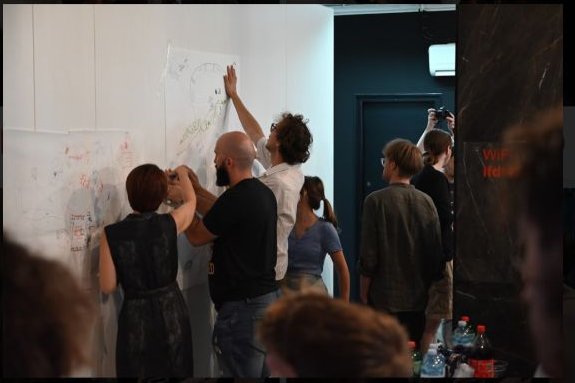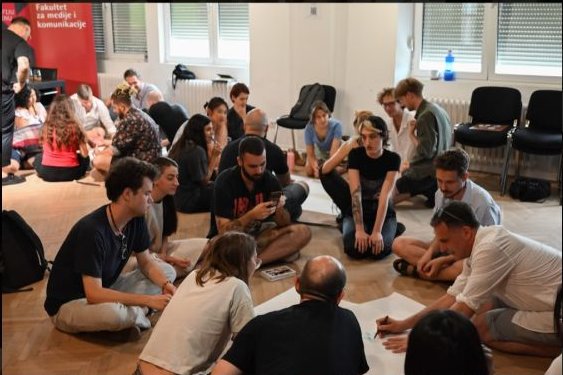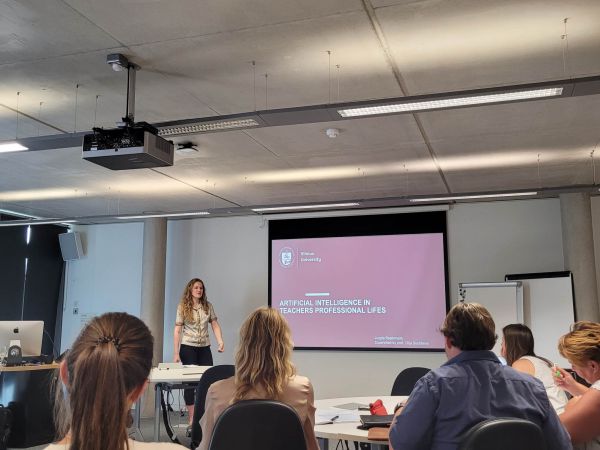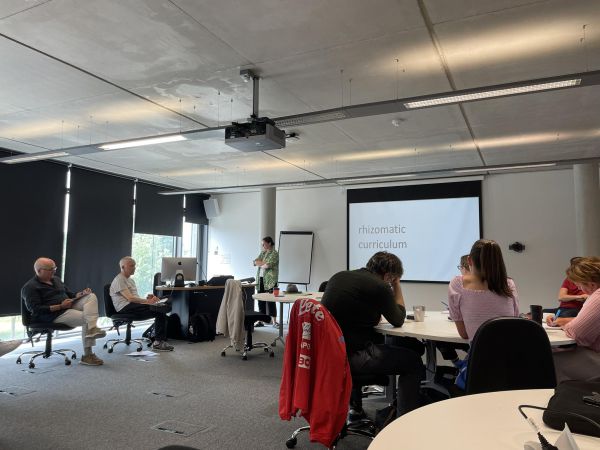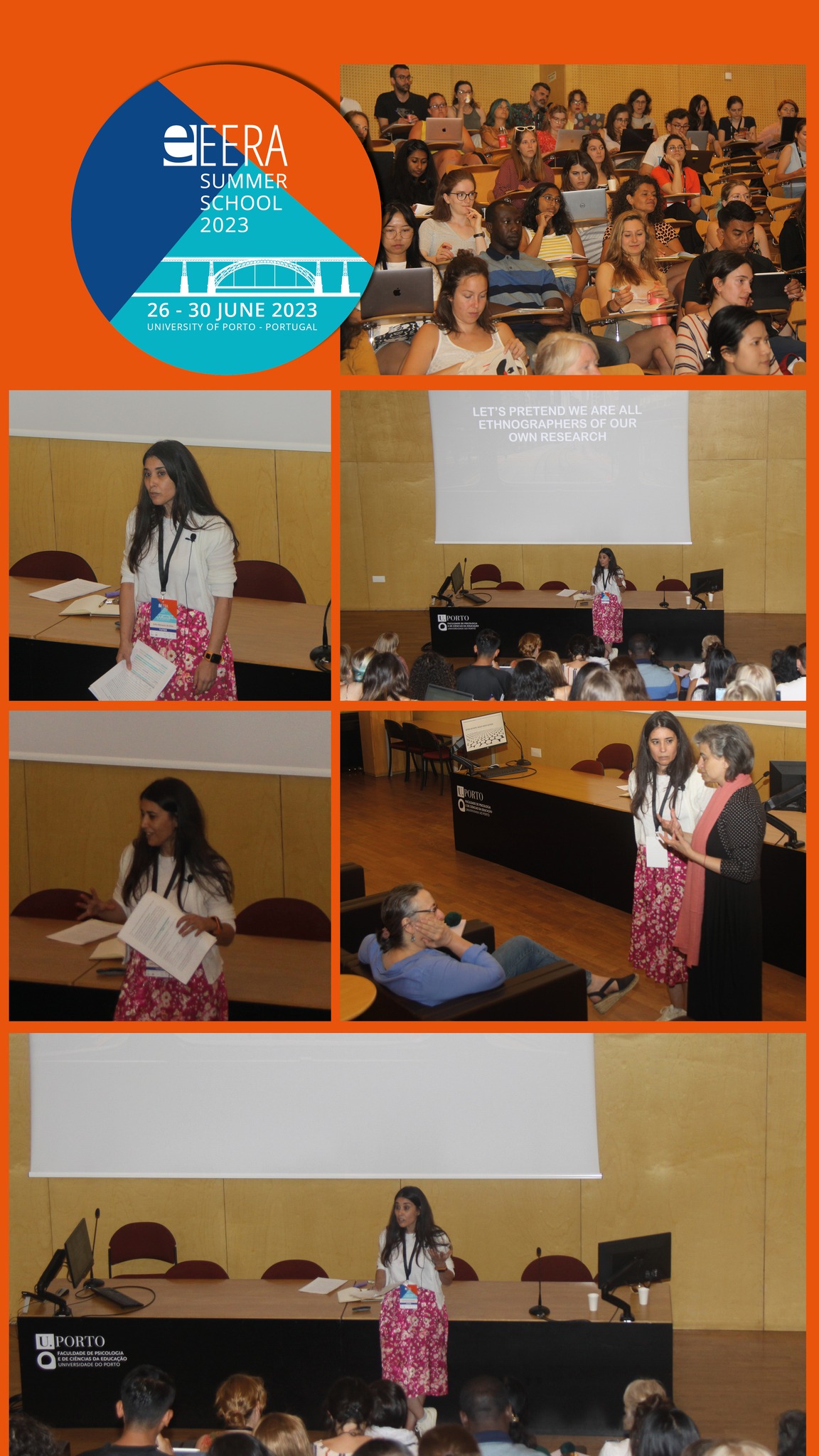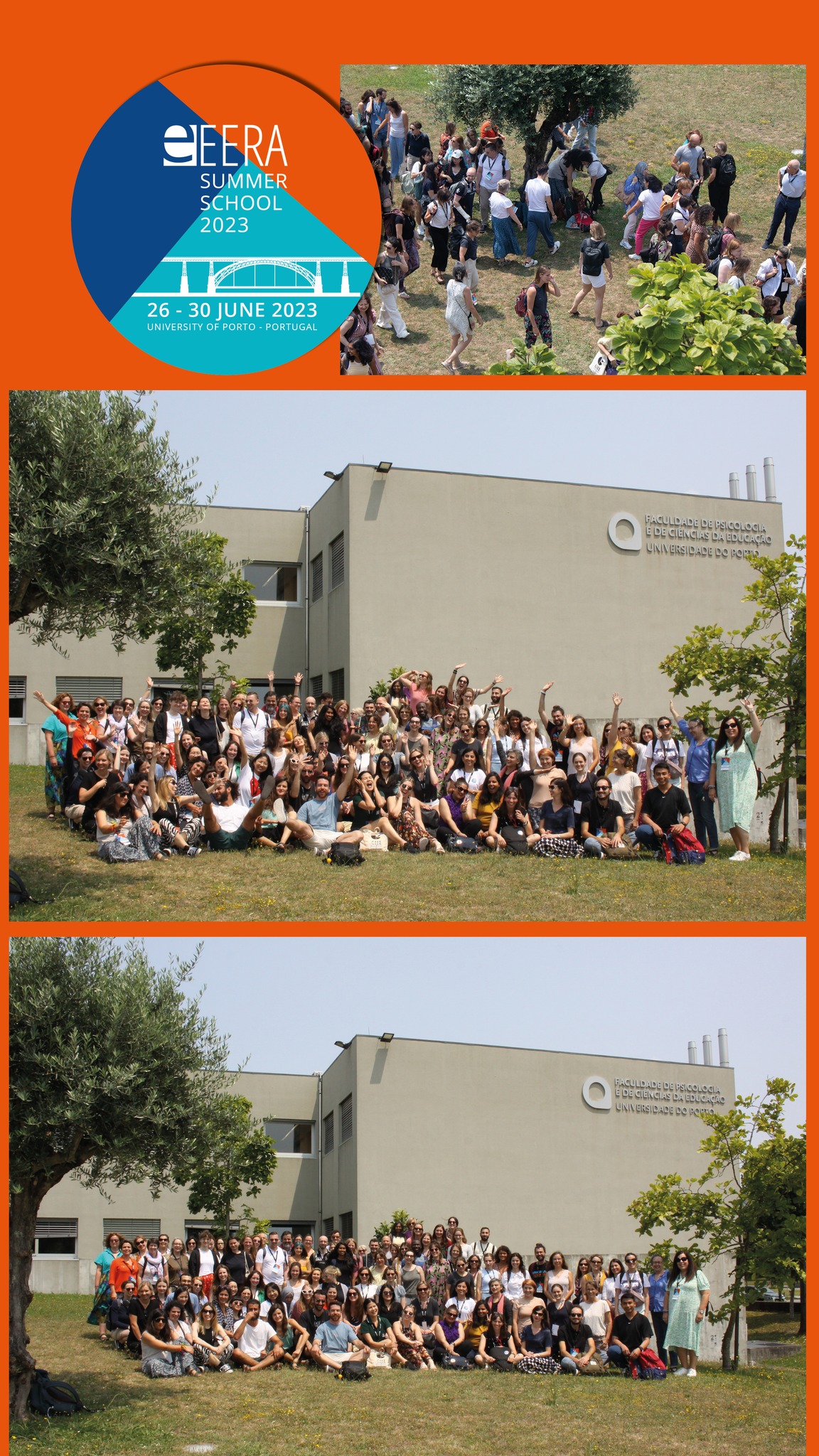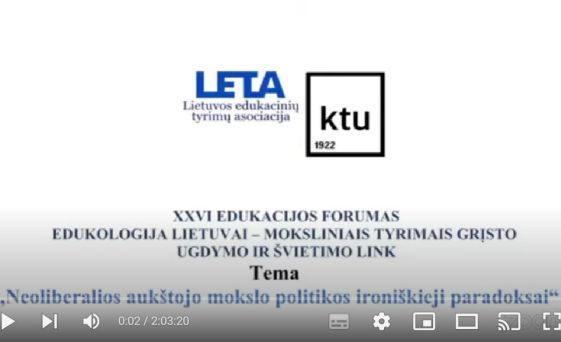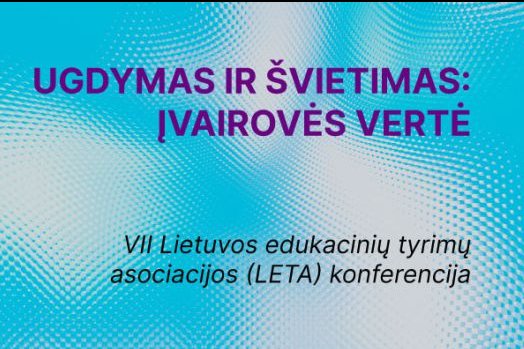
We announce the program of the 7th LERA conference. Also we are kindly remind you that until this year October 8th (without announcements) registration for 2023 at Kaunas University of Technology is underway. October 12-13 the 7th conference of the Lithuanian Educational Research Association (LERA) “EDUCATION AND TRAINING: THE VALUE OF DIVERSITY“, dedicated to the 25th anniversary of the founding of the Lithuanian Educational Research Association. On the first day of the conference, the president of the European Educational Research Association, prof. Dr. Marit Honerød Hoveid. We invite you to actively register and create a science festival together!
You can also find it on the LERA website: https://lera.lt/en/lera-conferences/lera-2023-conference/, Menu: LERA conferences -LERA 2023 conference – Conference programme.
The conference is dedicated to the 25th anniversary of the founding of the Lithuanian Educational Research Association.
12 – 13 October, 2023, 37 A. Mickevičiaus St. , 44244 Kaunas, Aula – 202 a.
In the 21st century, many forms of socio-cultural diversity are increasingly being recognised and incorporated into education and educational practice, including both the education content and educational research itself. While this is a complex and controversial topic, it is also a force for change in society. In the context of contemporary education and training, diversity often includes, but is not limited to, issues such as ethnicity, disability, gender and sexuality, age, religion, language, geography (place), and culture. All of these existing forms of diversity have undeniable implications for curricula, pedagogical strategies, leadership, educational culture, etc. In fact, the entire education system is built on diversity: from the different educational theories and approaches to analyse, apply and implement models of education and assessment, to the diversity of methods and methodologies in educational research; from pre-school and primary education to higher education. Diversity simultaneously creates tensions but also challenges us to create a positive outlook, i.e. to exploit the potential that diversity brings us. Education and training researchers, practitioners and policy-makers are therefore increasingly confronted with the following questions: what are the implications of diversity for education and training processes; what are the challenges of diversity in education and training practice and research; how can education research help to address the challenges posed by increasing diversity and its forms, what is the need for and role of such research; what are the roles of practitioners, researchers, and policy-makers in these processes?
The first day of the conference (12th of October) is dedicated to plenary presentations, scientific debates and other joint activities. The proceedings will take place in a contact mode at the Faculty of Social Sciences, Humanities and Arts of Kaunas University of Technology (37 A. Mickevičiaus St. , 44244 Kaunas, Aula – 202).
The second day of the conference (13th of October) will be dedicated to breakout sessions; breakout sessions are planned in two sessions of 1.5 hours each, with oral and poster presentations and discussions.
All sessions are scheduled to take place “live” at Kaunas University of Technology, with the exception of the roaming sessions, which can be accessed remotely. The exact locations of the breakout sessions and the login information for the remote session will be included in the final conference programme.
The deadline for registering for the conference with a presentation and, if necessary, for adjusting the title of the presentation is 25th of September , 2023. For participants without a presentation, registration is open until 8 October 2023:
For more information: https://lera.lt/leta-konferencijos/ugdymas-ir-svietimas-ivairoves-verte/
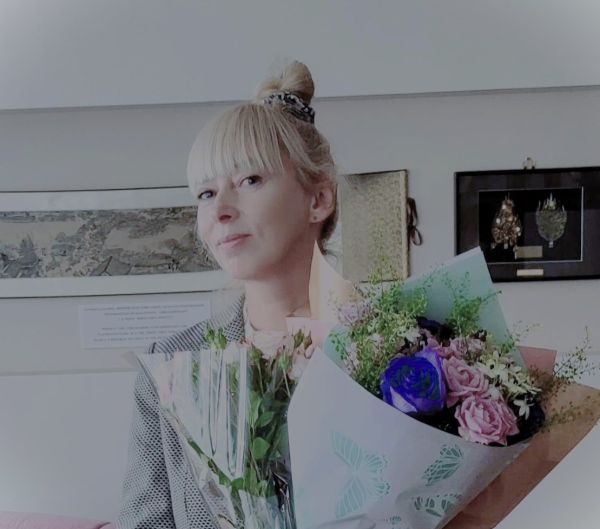
Congratulations to the new PhD student Gitana Naudužienė on successfull defence her doctoral thesis: Development of Emotional Intelligence through the Practice of Mindfulness (Education Science (S 007), supervisor – prof. dr. Vaiva Zuzevičiūtė) and on acquiring the PhD degree of Social Sciences in the field of Education.
The dissertation is available at: https://www.mruni.eu/events
A short annotation of the dissertation is presented below:
The dissertation “Developing Emotional Intelligence through the Practice of Mindfulness” aims not only to reveal the links and dependencies between emotional intelligence and mindfulness, but also to reveal the theoretical underpinnings of the development of emotional intelligence in the modern world, and of mindfulness, as a transformative contemplative method of developing emotional intelligence, to identify the factors of emotional intelligence and mindfulness that influence professional success and satisfaction, and to explore the possibilities of developing emotional intelligence through the absorption of life experience through self-directed learning.
Based on theoretical and empirical research, it identifies the main mechanisms of the effects of mindfulness on emotional intelligence, describes the main applied activities for the development of emotional intelligence, and describes the competences to be developed. The knowledge based on the dissertation research will be used to model the possibilities of developing emotional intelligence in formal and non-formal educational environments.
Dissertation Defense Council:
Chairperson – prof. dr. Valdonė Indrašienė (Mykolas Romeris University, Social Sciences, Education, S 007);
Prof. dr. Rūta Girdzijauskienė (Klaipėda University, Social Sciences, Education, S 007);
Prof. dr. Valentina Dagienė (Vilnius University, Social Sciences, Education, S 007);
Prof. dr. Vida Gudžinskienė (Mykolas Romeris University, Social Sciences, Education, S 007);
Prof. dr. Soonghee Han (Seoul National University, Republic of South Korea, Social Sciences, Education, S 007).

Dear Ones,
“We need to find our own views, our own relationship in all areas of science and life, and in this way join to the global culture not only as consumers, but also as creators” (Meilė Lukšienė).
We are kindly congratulate you on the occasion of International Teachers’ Day and wish you endless ideas, patience, great results, and discoveries.
LERA Team
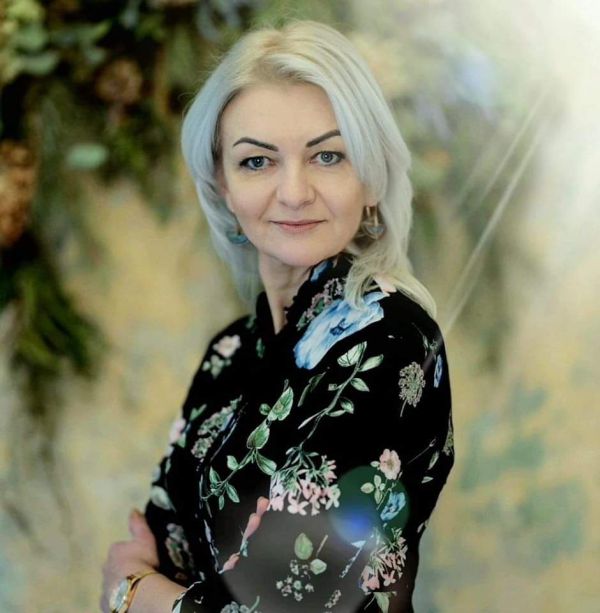
Congratulations to the new PhD Aušra Kardašienė on the successfully defece of her doctoral dissertation “Creating an Inclusive Culture in Gymnasium Through Informal Musical Activities” (Education (S 007), scientific supervisor – prof. dr. Diana Strakšienė) and acquirung the degree of PhD of Social Sciences in the field of Education.
The dissertation is available in the libraries of Vilnius University, Kaunas University of Technology, Lithuanian University of Sport and on the VU website at: www.vu.lt/lt/naujienos/ivykiu-kalendorius
A short annotation of the dissertation is presented below:
The dissertation highlights the assumptions that the changing aspirations of the education system inevitably change the conception of the school as an organisational culture, which is influenced by competition, changing societal demands, expectations of the students, the growing interest of the state, and the requirements of accountability. The theoretical concept of the school as an organisational culture is justified, the phenomenon of school culture in the context of inclusive education is discussed, the concept of inclusive education is conceptualised in the context of educational paradigms, and a qualitative study was conducted, using a semi-structured interview method, which aimed to find out what meanings pupils, teachers, and parents give to the expression of non-formal musical activities in gymnasium, and how it is possible to build an inclusive culture in gymnasium on the basis of the non-formal musical activities.
The study revealed that the development of an inclusive gymnasium culture (IGC) model using informal music activities is significant in creating a school for all, as it eliminates discrimination and exclusion of inclusive students and empowers everyone in the organisation. This culture, where the whole community is actively involved in the life of the school by being open to change, leads to the conclusion that the fundamental values that are built through informal music activities have a positive impact on the pupils’ desire not only to express themselves creatively, to experience success through music, but also to strengthen the collaborative relationship between all the actors in the educational process.
Dissertation Defense Council:
Chair – prof. dr. Romualdas Malinauskas (Lithuanian University of Sport, Social Sciences, Education – S 007),
Prof. dr. Renata Bilbokaitė (Vilnius University, Social Sciences, Education – S 007),
Prof. dr. Beate Hennenberg (University of Music and Performing Arts Vienna, Austria, Humanities, Art History – H 003),
Assoc. prof. dr. Emilija Alma Sakadolskis (Vilnius University, Social Sciences, Education – S 007),
Assoc. prof. dr. Edita Štuopytė (Kaunas University of Technology, Social Sciences, Educational Sciences – S 007).
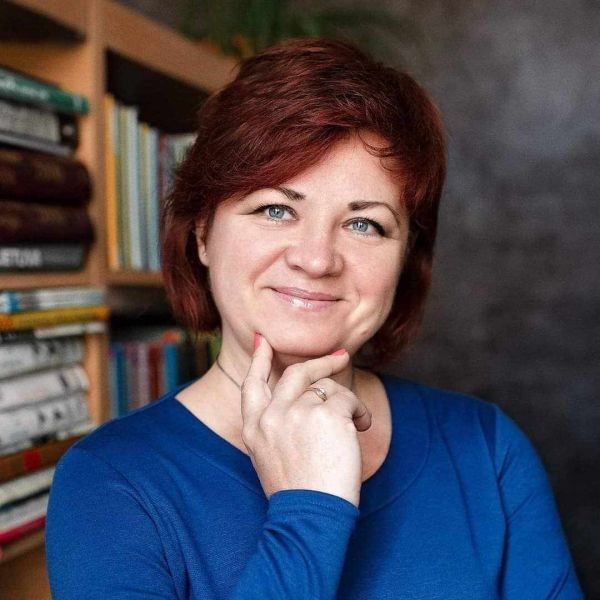
Congratulations to the new PhD Natalija Kaunickienė on the successfully defece of her doctoral dissertation “Personal Professional Development in Schools: Teachers’ Experiences of Professional Development ” (Education (S 007), scientific supervisor – prof. dr. Remigijus Bubnys) and acquirung the degree of PhD of Social Sciences in the field of Education.
The dissertation is avaitable at at the libraries of Vilnius University, Kaunas University of Technology, Lithuanian University of Sport and on the VU website at: www.vu.lt/lt/naujienos/ivykiu-kalendorius. The dissertation can be accessed at: https://is.vu.lt/pls/pub/ivykiai.ivykiai_prd?p_name=258FF2DA238CE2410BEB200A59675058/KA...
A short annotation is presented below:
The dissertation analyses teachers’ experiences of professional growth in the context of the personal professional development (PPD) system in school, revealing the content of the concepts of professional development and professional growth, and the analysis of models of professional development. A theory-based model of PPD is presented, covering the individual, group, and institutional levels and the key areas of professional development, which provides the basis for the implementation of a school-based PPD system for effective teacher personal and professional development.
Phenomenographic research (Marton, Säljö, Svensson, Åkerlind) has enabled the identification of categories illustrating teachers’ experiences of professional development at different levels: individual – reflective individual change; group – collegial collaboration to achieve goals; and organisational – system-enabled personal professional development. The hierarchical relationships between the categories and the space of results presented confirmed the fundamental idea of personal professional development in the context of the school system: the teacher experiences professional growth through changes in his/her behaviour, thinking and attitudes, through learning in the form of acquiring new knowledge, through systematic individual and group reflection, through collaboration, through the development of a distinctive teaching methodology, etc. The essential ways in which teachers learn, promoting professional growth, linking individual and organisational development practices. The identified mechanisms for effective personal professional development enable the modelling and design of unique and effective conditions for professional development, learning and growth in schools through the development of professional capital.
Dissertation Defence Council:
Chair – prof. dr. Aušra Kazlauskienė (Vilnius University, Social Sciences, Education – S 007),
Prof. dr. Romualdas Malinauskas (Lithuanian University of Sport, Social Sciences, Education – S 007),
Assoc. prof. dr. Asta Meškauskienė (Vilnius University, Social Sciences, Education – S 007),
Prof. dr. Brigita Janiūnaitė (Kaunas University of Technology, Social Sciences, Education – S 007),
Prof. habil. dr. Joanna M. Łukasik (Pedagogical University of Kraków, Social Sciences, Education – S 007).
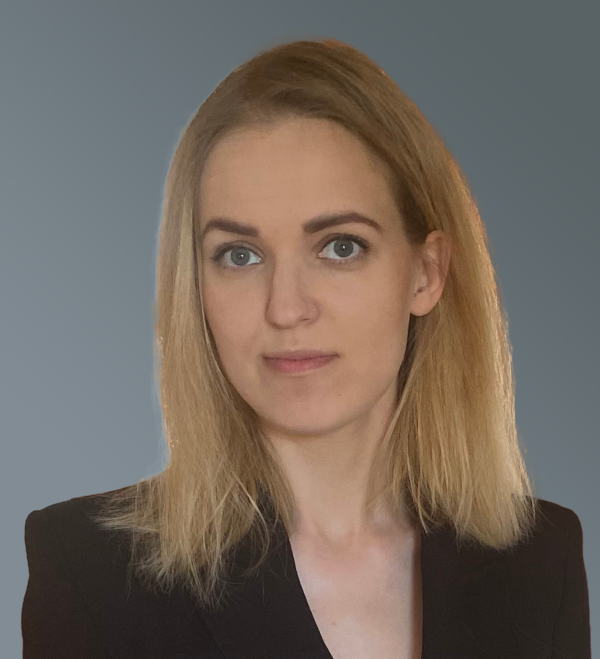
Congratulations to the new PhD Rasa Greenspon on the successfully defece of her doctoral dissertation “Supporting Teachers in Developing Learning-Oriented Assessment in Technology-Based Learning Environments” (Education (S 007), scientific supervisor – prof. dr. Airina Volungevičienė, scientific advisor – prof. dr. Erno Lehtinen) and acquirung the degree of PhD of Social Sciences in the field of Education.
The dissertation is avalable at the libraries of Vytautas Magnus University and M. Mažvydas National Library of Lithuania.
The dissertation is avalable at: 11 Studentų St., Academy, Kaunas district.
A brief annotation of doctoral thesis is presented below:
In technology-enhanced learning (TEL) environments, teaching and assessment practices often require a different approach, as the application of pedagogical practices that are effective in classroom teaching do not work because TEL environments enable new interactions and feedback opportunities for teachers and learners. Using a qualitative approach, this thesis aims to identify the potential of technology-enhanced teaching (learning) environments to support lecturers in designing learning-centred assessment. The findings are based on theoretical analysis and findings from a two-phase empirical study, e.g., a qualitative study carried out through semi-structured interviews with experts in the field (expert interviews) and a case study in a selected HEI (interviews with lecturers and a subject analysis in a Moodle distance learning environment).
This study has confirmed that the implementation of learning-centred assessment in a TGM environment is a complex process, but that there are many benefits to be gained from the use of technological solutions to facilitate assessment. The potential of the TGM environment for facilitating and improving the learning process can be observed: the TGM environment creates opportunities to promote self-directed learning and allows for interactive learning and feedback. The TGM environment facilitates assessment by equipping lecturers with tools to monitor learners’ learning progress, enabling timely feedback and supporting a learner-centred approach.
Dissertation Defence Council:
Chair – prof. dr. Vilma Žydžiūnaitė, Social Sciences, Education S 007, Vytautas Magnus University
Prof. dr. Auksė Balčytienė, Humanities, Philosophy H 001, Vytautas Magnus University
Prof. dr. Nijolė Burkšaitienė, Social Sciences, Education S 007, Vilnius University
Assoc. prof. dr. Viktorija Mažeikienė, Social Sciences, Education S 007, Mykolas Romeris University
Prof. dr. Ana Balula, Social Sciences, Education S 007, Aveiro University
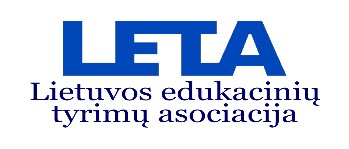
XXVII EDUCATION FORUM
EDUCATION FOR LITHUANIA – RESEARCH-BASED EDUCATION
TOWARDS RESEARCH-BASED EDUCATION AND TRAINING
We invite education and training researchers, postgraduates, doctoral students, university lecturers, education and social policy makers, representatives of scientific associations and NGOs, primary school teachers, and all those who are interested in the issues of primary education.
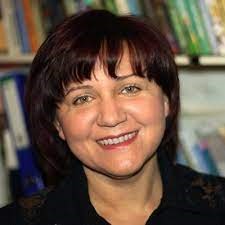
About the key-note speaker
Dr. Ramutė Skripkienė is a specialist of the Achievement Research Unit of the Achievement Department of the National Education Agency, coordinating the implementation of the IEA PIRLS international survey in Lithuania for more than 10 years. Ramutė is also the author of textbooks and other teaching and methodological tools for the national language, the author of national language programmes for primary grades, the co-author of general programmes and methodological recommendations for primary education, and an expert in the international programmes ,,Zipio draugai” and ,,Obuolio draugai”.
| Date | 28th of September 2023 |
| Time | 3.00 p.m.– 5.00 p.m. |
| Translation | https://us06web.zoom.us/j/86573328963?pwd=zzNWkjUNYcj9bcWroXoIPLjATbkpor.1 |
| Moderators |
Prof. dr. Daiva Jakavonytė – Staškuvienė, Member of the Board of the Lithuanian Educational Research Association, Professor at Vytautas Magnus University; Assoc. prof. dr. Jolita Kudinovienė, Associate Professor, Vytautas Magnus University Academy of Education, Head of the Department of Preschool and Primary Education. |
|
Participants of discussions
|
Dr. Aušra Žemgulienė, Associate Professor, Institute of Educational Sciences, Faculty of Philosophy, Vilnius University, Head of the Childhood Pedagogy study programme, Dr. Aušra Daugirdienė, Associate Professor, Institute of Psychology, Vilnius University, Chief Researcher, Institute of Educational Research, Vytautas Magnus University, Dr. Linas Jašinauskas, Associate Professor, Vytautas Magnus University Academy of Education, Head of the Department of Modern Didactics, Tautvydas Kelpšas, primary school teacher at Kaunas VMU School of Classical Education. |
| Summary of discussion | prof. dr. Daiva Jakavonytė – Staškuvienė, doc. dr. Jolita Kudinovienė |
| Contact information |
[email protected], tel. 8 686 39 529 [email protected], tel. 8 699 67 138 |
Congratulations to the new PhD Aida Kairienė on the successful defence of her doctoral thesis.
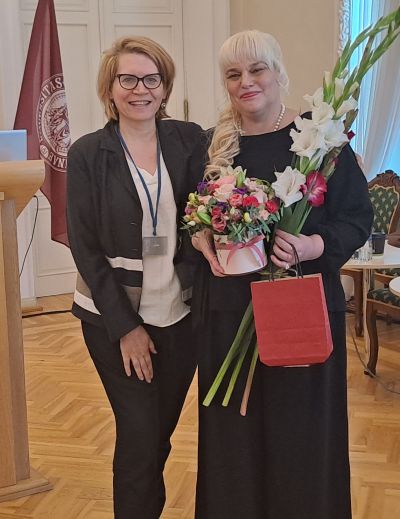
Congratulations to the new PhD Aida Kairienė on successfully defending her doctoral thesis: The Rhizomatic Learning of English Among Upper-Grade Class Students (Education (S 007), Scientific supervisor – prof. dr. Natalija Mažeikienė) and obtaining the degree of PhD of Social Sciences in the field of Education.
The dissertation is avalable at the libraries of Vytautas Magnus University and M. Mažvydas National Library of Lithuania.
The dissertation is avalable at: 11 Studentų St., Academy, Kaunas district.
A brief annotation of doctoral thesis is presented below:
The dissertation aims to reveal the rhizomatic learning of English by upper-grade secondary students in non-formal and informal learning contexts beyond the classroom and the interaction and/or integration of these learning experiences into formal education. According to the researchers’ insights, rhizomatic learning is learning that uses Deleuze and Guattari’s (2004) concept of the rhizome to describe its features, where the rhizome grows in all directions, the middle of the rhizome is visible, but it is difficult to identify the beginning and the end of the rhizome (Cormier, 2008, 2011). In this way of learning, learners create a personal learning network and realise their needs (Lian & Pineda, 2014). The theoretical part deals with the philosophical, educational, and philological elements related to rhizomatic learning. The empirical research includes narrative inquiry, rhizoanalysis (Masny, 2015), and cartography. In this dissertation, narrative inquiry reveals the nature of language teaching and learning as an acquired experience (Barkhuizein et al., 2020; 2014; 2007). The cartography involved the construction of rhizomatic maps (Corner, 2011) and a rhizoanalysis based on rhizome principles disclosed by Deleuze and Guattari. This study demonstrates that rhizomatic learning occurs not only in the community, but also when learners build a personal learning network developing their English language skills through various activities. This development of learners’ personal rhizomatic learning networks allows them to identify ways and experiences of learning English in non-formal and informal learning contexts beyond the classroom, and enables teachers to integrate learners’ experiences into formal education.
Dissertation Defense Council:
Chair – prof. dr. Lina Kaminskienė (Vytautas Magnus University Academy of Education, social sciences, education S 007).
prof. dr. Nemira Mačianskienė (Vytautas Magnus University Academy of Education, social sciences, education S 007),
prof. dr. Nijolė Burkšaitienė (Vilnius University, social sciences, education S 007),
prof. dr. Lilija Duoblienė (Vilnius University, social sciences, education S 007),
prof. dr. Liudmila Rupšienė (University of Klaipėda, social sciences, education S 007).
International distance conferences „Achievements of 21st Century Scientific Community“ and „Education via Distance Learning and other Pedagogical Challenges“.
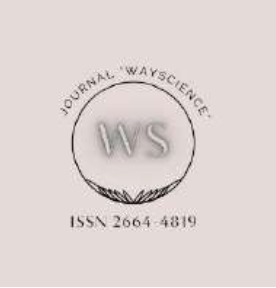
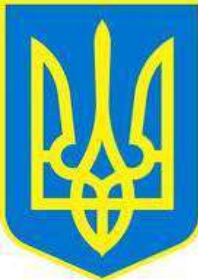
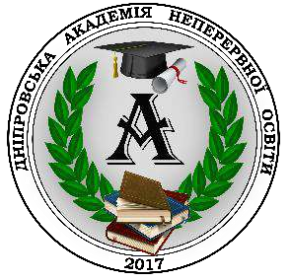
Scientific Society of Students, Postgraduates and Young Scientists of Dniprov Academy of Continuing Education (Dnipro, Ukraine) and editorial office of International Electronic Scientific and Practical Journal “WayScience” (http://www.wayscience.com/) invite scientists, scientific and pedagogical staff, doctorates, postgraduate students, students of your educational institution and professionals in their field to take part in: 1st International Scientific and Practical Internet Conference “Achievements of 21st Century Scientific Community”, September 14-15, 2023 and 2nd International Scientific and Practical Internet Conference “Education via Distance Learning and other Pedagogical Challenges“, September 21-22, 2023. Please send paper and author’s information to the journal’s editorial office at [email protected].
Actual information: Conference September 14-15, 2023
The international ERRA conference in Glasgow took place from 21 th to 25 th in August, 2023. Emerging Researchers’ Conference was held from 21th to 22th in August, 2023. The European Conference on Educational Research took place from 22th to 25th in August, 2023. A group of researchers from Lithuania attended the conferences.
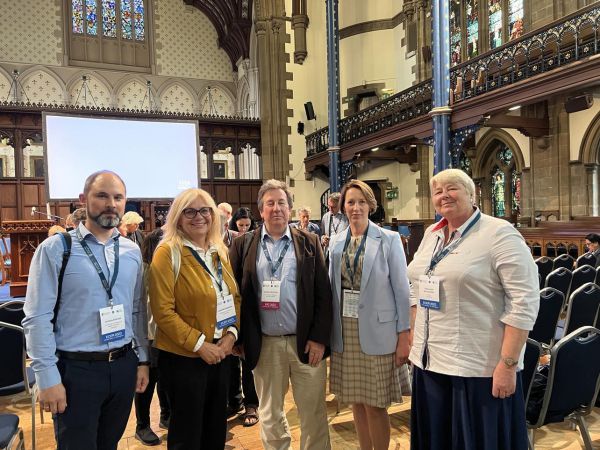
LERA representatives meeting with the main organiser of the conference, EERA Board Member, Professor dr. Stephen McKinnley of Glasgow University.
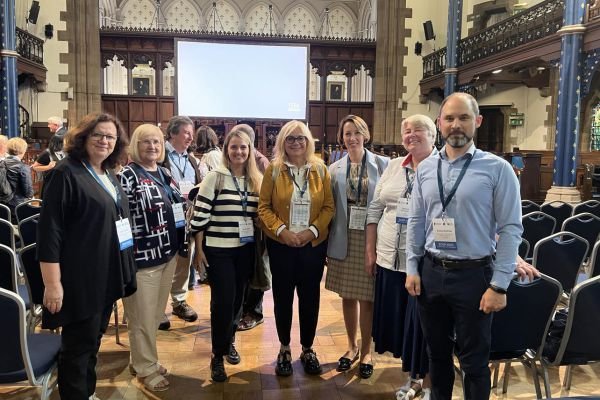
A group of LERA members at the opening of the conference.
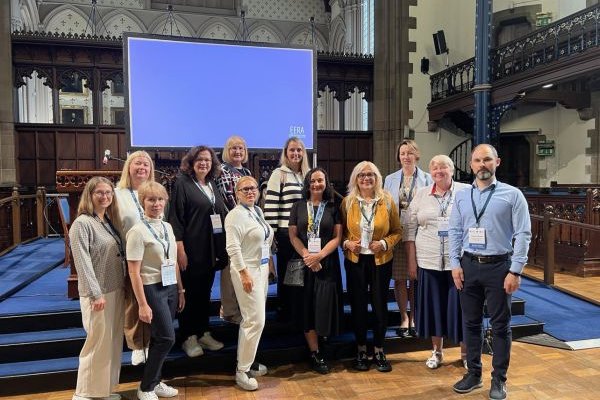
At the conference, we met colleagues from the Ukrainian Educational Research Association. They thanked us for our support in this difficult time of war. They were pleased that the unrestricted financial support of LERA members was very helpful for them to come to Glasgow for the conference.
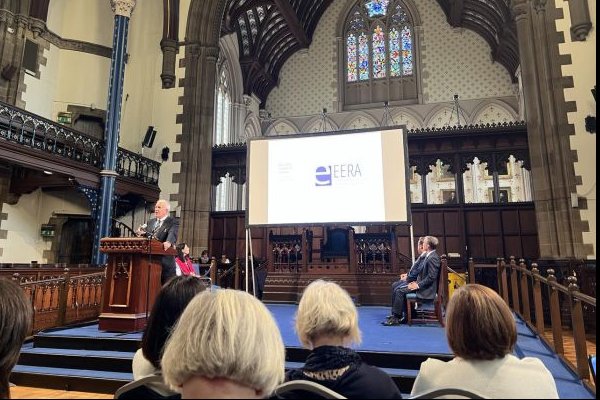
EERA president Joe O’Hara opens the conference in the prestigious Glasgow University Palace.
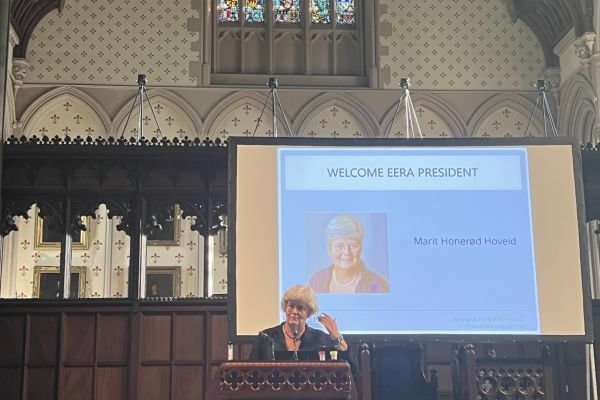
Marit Honerod Hoveid, EERA’s new president, takes office. One of the first trips of the new president is planned to Lithuania for the anniversary conference of our Association.
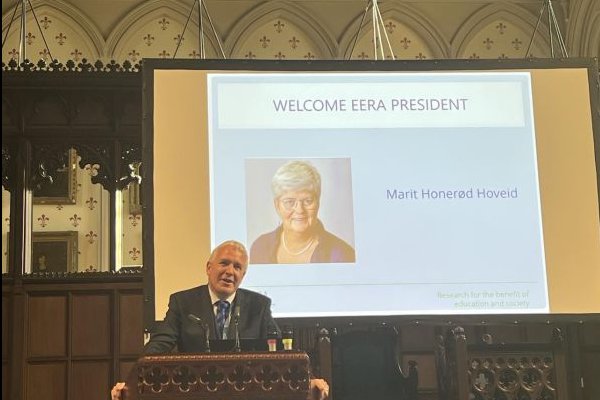
The EERA president provides background information on the conference. Around 3500 education researchers attended. It was the largest EERA conference in its history. And the largest conference of education researchers in Europe. These figures are a testimony to EERA prestige and status among European educational researchers.
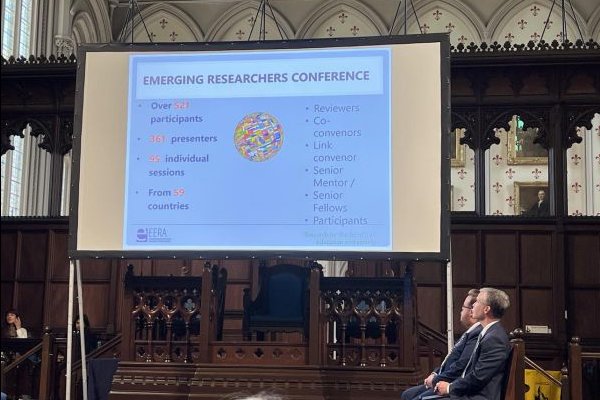
Information on the participation of the EERA Network of Emerging Researchers in the conference.
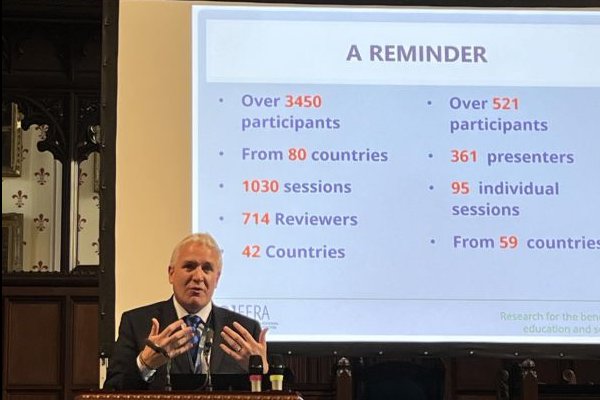
This conference was Joe O’Hara’s last event as EERA president. He completed his 5-year term as president.
Deleuze and Guattari Study Summer Camp
On 3-7, July, 2023 at the University of Belgrade, Serbia, the fifteenth international Deleuze and Guattari Study camp took place. Scientists, doctoral students and those interested in the philosophy of these authors spent five days discussing its application in various fields of science: sociology, architecture, psychiatry, art studies, politics, education, etc. Ian Buchanan, Janae Scholtz, Anthony Faramelli, Andrija Filipović and Jovan Ćekić gave presentations and introduced the theoretical application of Deleuze’s and Guattari’s concepts. In practical sessions, participants drew cartographies and diagrams of power and coercion, applied the differential method. VU doctoral student Rūta Gajauskaitė also participated in the camp: “The Lecture workshop broadened and deepened the understanding of how Deleuze and Guattari’s philosophy is and can be applied. It was also interesting to See philosophers disagreeing about the meanings of concepts – this encourages us to continue reading and interpret texts in our own way, especially “A Thousand Plateaus”.
International doctoral conference in Ireland.
On the 12-16 th of June, 2023 Jurgita Bagdonaitė and Rūta Gajauskaitė, doctoral students of Educational Sciences from VU participated in the international conference of doctoral students (Maynooth University, Ireland). Five days of presentations and discussions were coordinated by prof. Carl-Andres Safstrom and prof. Gert Biesta. Doctoral students from Chile, Saudi Arabia, and European countries presented the research they are doing or planning to do. Not only did we get acquainted with the variety of educational topics (from teacher training to criticism of neoliberalism, solidarity and social justice in schools), but also the systems of organizing and conducting doctoral studies in different countries were touched upon. It was the third such conference, and it is planned to organize it next year as well. The conference is especially worth attending for those who write on the topics of democratic, social-civic education. The essential benefit of the conference is the opportunity to receive abundant, diverse feedback on the issues of research being conducted or planned to be conducted.
LERA PhD students at the European Educational Research Association Summer Camp
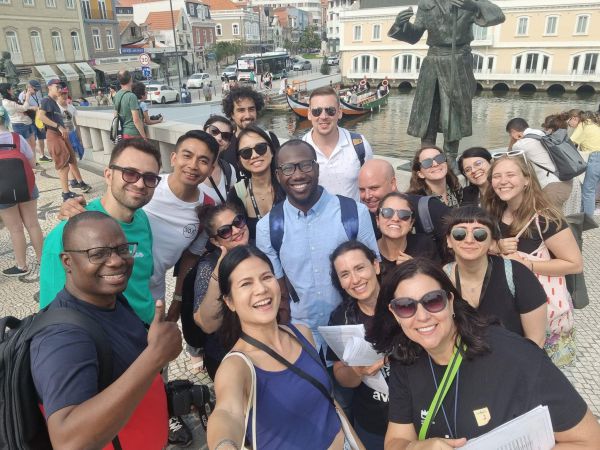
From 25th to30th June, around 80 PhD students from different countries participated in the European Educational Research Association (EERA) Summer School for PhD students “EERSS 2023 – Participatory approaches in educational research” in Porto, Portugal. I am glad that five members of the Lithuanian Educational Research Association were among them – Evelina Buroke, Rūta Gajauskaitė, Gintė Marija Ivanauskienė, Vaida Padgurskytė, PhD students of Vilnius University and Antanas Vitkauskas, PhD student of the Klaipėda University.
According to Evelina Buroke, this summer school course was a great opportunity to deepen the tools of qualitative research methodology used in her dissertation research, as well as to meet PhD students from other countries who are doing research in the field of social sciences and education, and to establish collaborative links. This summer school course featured presentations by lecturers such as Nicole Brown from UCL (University College London, UK) and Sofia Marques da Silva from the University of Porto (Porto University, Portugal). Doctoral students had the opportunity to present their dissertation projects, to discuss with colleagues in small groups and to receive valuable feedback from the international community of educationalists.
We are kindly invite you to read Antanas Vitkauskas’ impressions of the summer school.
It was the first time I participated in the EERA (European Educational Research Association) Summer School, which is organised by the European Educational Research Association in Porto, Portugal. It was not the only “first”. I am a first year PhD student, I am experiencing for the first time a journey into the social sciences (I changed my field of study when I started my PhD), and I saw for the first time the international community of doctoral students in education and doctoral students at this camp. The theme of the camp is participatory action research, and how this methodology can change the power relations in pedagogy, thus bringing more democracy to the education of children and adults.
I particularly recommend it to those who are new to doctoral studies. Above all, because of the international context. This camp allowed me to see what European doctoral students and researchers in educational research are up to, what the trends are, what is ‘in’ in European research and what is ‘out’ (there were many students from other continents).
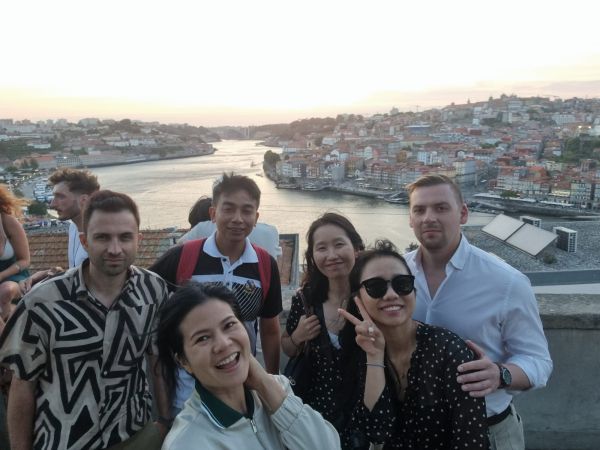
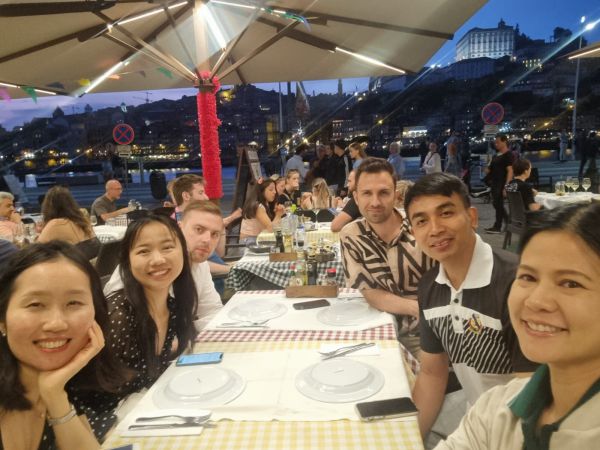
Secondly, this camp focused not only on methodology itself, but also on how to present your research. The method of presenting student research at this year’s camp was the poster presentation. Each PhD student had to present his or her research, or a part of it, by means of a poster presentation. A separate workshop was devoted to the preparation of the poster for the poster presentation, which involved the use of various poster production and design tools. For me, the exposure to poster presentations was another first in my PhD studies.
Third. A perfectly relaxing environment where each participant is open to the ideas, questions and interests of the others. The camp is an academic adventure, but the sense of simplicity of a children’s camp never leaves – for early career researchers it is a particularly conducive place to enter the international context of educational research.
And alongside the academic adventure, there are long hot evenings in the beautiful city of Porto, watching the sunset with colleagues. I categorically recommend it to first-year students and senior PhD colleagues.
IGintė Marija Ivanauskienė complemented her colleagues with the following thoughts:
“this summer school was a great opportunity to look at my PhD research through the prism of participatory research. Personally, it was unexpected that this type of research can also approach expressions of activism, which we discussed a lot in our groups. Moreover, as a researcher looking into student participation, it was useful for me to be able to look at the broader phenomenon of participation itself through such a methodological prism”.
Rūta Gajauskaite also enjoyed this summer camp for other reasons:
“this PhD summer school surprised me with its carefully structured programme and the many opportunities for networking. In addition to the main lectures, we worked in smaller thematic groups and projected the possibilities of applying participatory research in our own research. On a trip to the University of Aveiro, we took part in a workshop aimed at illustrating the partnerships forged through participatory research through practical examples. The discussions started in lectures, seminars and workshops continued in social activities. The EERA Summer School was thus “saturated” with formal and informal academics.
Meanwhile, Vaida Padgurskytė summed up her impressions as follows: “A new place – new experiences, like-minded people, colleagues, friends… EERSS was the best academic adventure of my summer”. “During the PhD summer camp, I deepened my methodological knowledge and got acquainted with a new methodology – Participatory research. I am very happy that the camp gave the PhD students the opportunity to get acquainted with methodological guidelines, which for me personally is a completely new field, which scares me a lot. Each PhD student had the opportunity to work for a whole week with like-minded colleagues from similar research topics, so we were divided into groups. So, throughout the week we were discussing and analysing topics close to our own research, sharing our experiences and insights. For a first year PhD student, peer support is very important, because the academic vastness seems quite intimidating, but once you find support, the academic path seems not so scary anymore. I am very happy to have Teresa Dias and Patricia Sa as leaders of our group (Group 8), who actively shared their experiences and insights as researchers. The daily discussions in the group encouraged us to talk and share our experiences, which brought us even closer together. It’s a pity that time passed so quickly… During the PhD Summer Camp, we also went to the University of Aveiro, where I took part in one of several optional workshops. The workshop “Rehearsing Participatory Research With Children… Why, How and What for? (Manuela Goncalves). During the workshop, I was introduced to participatory research methods and an overview of participatory research in the context of Portuguese researchers. During the workshop at the University of Aveiro, we analysed 3 young researchers’ projects, which provide a detailed description/presentation of the methodology, subjects, context and results. Research with children as the main subjects is quite challenging, as it requires a high level of attention and preparation on the part of the researcher, as well as adherence to the principles of research ethics. It can be argued that the trip to the University of Aveiro and the participation in the workshop helped to further understand the research framework for a sensitive group of research subjects, children. At the PhD summer camp at the University of Porto, I attended a lecture by Dr Nicole Brown on ‘Participatory Research and Creative Methods in Data Collection’. Dr. Brown presented creative ways of collecting data and filling out a research journal. As a young researcher, new methods of data collection are a very relevant topic for me. On Thursday afternoon, we also had the opportunity to attend Sofia Marques da Silva’s lecture “Let’s Start at the interesting Beginning” – participatory approaches as arenas of negotiation of systems of knowledge and place-based agendas.
Congratulations to the new PhD Rasa Ddžiulienė on the successful defence of her doctoral thesis.
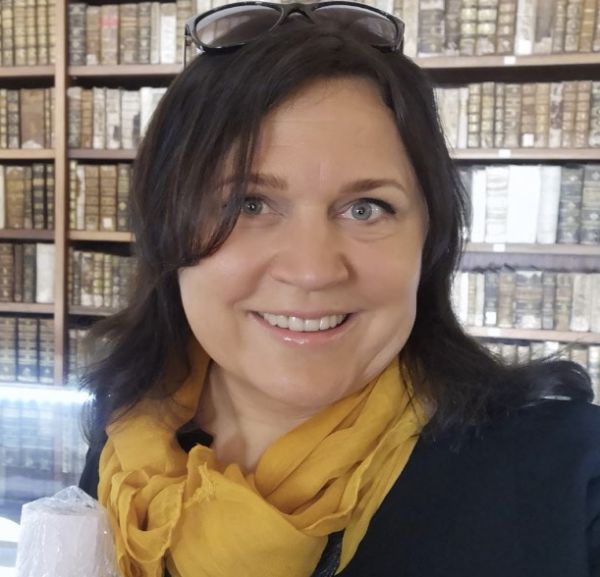
Congratulations to the new PhD Rasa Didžiulienė on successfully defending her doctoral dissertation “Subjective Perception of Professional Happiness in the Teachers’ Community: a Comparison of Gender Aspects” (Education Sciences (S 007), scientific supervisor – prof. dr. Genutė Gedvilienė) and on acquiring the degree of PhD of Social Sciences in the field of Educational Sciences.
The dissertation is available at Vytautas Magnus University and Lithuanian National M. Mažvydas Library.
The dissertation is available at 11 Studentų St., Akademy, Kaunas district, Lithuania.
A brief annotation of the thesis is presented below:
This dissertation examines the subjective perception of professional happiness in the teacher community from a gender perspective. How does the construct of subjective perception of professional happiness manifest itself in the Lithuanian teacher community? What types of teachers exist according to the attribute under study (subjective perception of professional happiness) and what is the relative prevalence of these types in the Lithuanian teacher community? What gender differences exist in terms of: a) subjective perceptions of happiness in the teaching profession; b) the distribution of teachers’ internal psychological personality traits and the professional and working environment?
The theoretical part of the dissertation analyses the development and transformations of the concept of professional happiness of teachers, discusses the psychosocial portrait of the Lithuanian teacher, reveals the harmony between the subjective sense of happiness and the world of work, and the effects of gender in the professional activity. In addition, the multidimensionality of the construct of professional happiness is highlighted and its analysis in terms of content components is carried out. The empirical study reveals the expression of social and occupational context factors and the links to occupational happiness in a population of general education teachers (N=1902). This study is likely to help to identify important factors in teachers’ perceptions of professional happiness and to stimulate teachers’ reflection and positive personality change in the development of this topic and in the purification of the notions of professional happiness in the whole school community.
Dissertation Defence Council:
Chair – assoc.prof. Aušra Rutkienė (Vytautas Magnus University, Social Sciences, Education S 007).
Assoc. prof. Ilona Tandzegolskienė-Bielaglovė (Vytautas Magnus University, Social Sciences, Education S 007),
prof. Rūta Girdzijauskienė (Klaipėda University, Social Sciences, Education S 007),
prof. Valdonė Indrašienė (Mykolas Romeris University, Social Sciences, Education S 007),
dr. Marta Kowalczuk-Walędziak (University of Bialystok, Poland).
Congratulations to the new PhD student Jogaila Vaitekaitis on the successful defence of his doctoral dissertation.

Congratulations to the new PhD student Jogaila Vaitekaitis on the successful defence of his doctoral dissertation ,,STEM Education in Lithuania: a Post-Humanism Perspective” (Education Sciences (S 007), scientific advisor – prof. dr. Lilija Duoblienė) and aquiring a Doctorate of Social Sciences degree in the field of Education Sciences.
The dissertation is available in the libraries of Vilnius University, Klaipėda University, Mykolas Romeris University and on the VU website at: http://vu.lt/lt/naujienos/ivykiu-kalendorius
A brief annotation of the thesis is presented below:
The thesis argues that STEM (science, technology, engineering, mathematics) education is a potential educational response to the challenges of the Anthropocene era. The aim of the thesis is to analyse the philosophical and ideological assumptions of STEM education in the context of the Anthropocene and to identify the posthumanist possibilities of its reconceptualisation in Lithuania. It is revealed that the dominant instrumentalist discourse of STEM education dictates an appropriate interpretation and evaluation of the concept of science literacy based on positivist, ontological and epistemological attitudes. The dissertation argues that the posthumanist ideas in the philosophy of education discourse are relevant to STEM education. Among the ideas proposed are a different conception of the human being; a questioning of the binary logic of the object/subject; and theories of feminism, post-colonialism and anti-racism. The results of a multilevel survey of STEAM education experts (n=45) revealed that there are four conceptualisations of STEAM in Lithuania: 1) Transhumanistic STEM+A; 2) Posthumanistic STEAM; 3) Capitalocene STEM+A; and 4) Plantaciocene STEAM. The dissertation argues that the second transdisciplinary, post-normal science STEAM conceptualization formulated by the experts is called posthumanistic and enables not only the development of techno-scientific, engineering solutions for the Anthropocene, but also the modification of its fundamental assumptions. Posthumanist STEAM questions disciplinary boundaries, human-centrism and the systems that reproduce asymmetrical power relations, including the natural sciences themselves.
Dissertation Defence Council:
Chair – prof. dr. Arūnas Poviliūnas (Vilnius University, Social Sciences, Sociology – S 005);
Prof. dr. Renata Bilbokaitė (Vilnius University, Social Sciences, Education – S 007);
assoc. prof. Mintautas Gutauskas (Vilnius University, Humanities, Philosophy – H 001);
prof. dr. Natalija Mažeikienė (Vytautas Magnus University, Social Sciences, Education – S 007);
prof. dr. Lina Markauskaitė (University of Sydney, Australia, Social Sciences, Education – S 007).
On the 20th of June, 2023, 3.00-5.00 the Education Forum “The Ironic Paradoxes of Neoliberal Higher Education Policy” was held. The keynote speech with the same title was given by dr. Rūta Petkutė (Researcher, Kaunas University of Technology). dr. Rimantas Želvys (Professor at Vilnius University), dr. Ainius Lašas (Dean of the Faculty of Social Sciences, Humanities and Arts at KTU), dr. Liutauras Kraniauskas (Head of the Centre for the Study of Social Changes, Klaipėda University, member of the Humanities and Social Sciences Committee of the Lithuanian Academy of Humanities and Social Sciences) took part in the discussion.
The discussion was summarised and moderated by prof. dr. Raimonda Brunevičiūtė (Member of the Board of the Lithuanian Educational Research Association, Professor) and dr. Romas Prakapas (Professor at Mykolas Romeris University). The full recording of the forum can be viewed on Youtube channel: https://www.youtube.com/watch?v=WCjMF33bnAI
Congratulations to the New PhD Irena Raudienė on the successful defence of her doctoral thesis
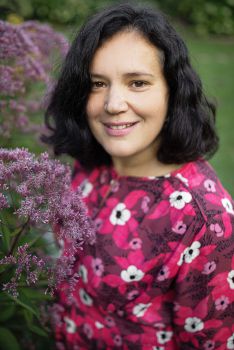
Congratulations to the new PhD Irena Raudienė on successfully defending her doctoral dissertation “Assessment Culture for Learning: a Critical Ethnographic Study of One School” (Education Sciences (S 007), scientific supervisor – prof. dr. Natalija Mažeikienė, and acquiring the degree of PhD of Social Sciences in the field of Education Sciences).
The dissertation is available at Vytautas Magnus University and Lithuanian National M. Mažvydas Library.
The dissertation is available at 11 Studentų St., Akademy, Kaunas district, Lithuania.
The dissertation aims to analyse the situation of achievement assessment in Lithuanian general education schools. According to the researchers’ insights, assessment in schools is often perceived as a way to determine the value of students’ performance in terms of grades or marks, but it does not exploit the potential of assessment to support students’ learning, does not always reflect students’ individual aptitudes and needs, and does not always measure students according to one standard. The dissertation seeks to substantiate the assumption that assessment practices are not only dependent on the expertise of the individual teacher, but are also an expression of the school culture, which is shaped by the daily interactions of community members.
Drawing on the most significant learning theories of the twentieth century, as well as critical and cultural theories, the paper analyses assessment as a pedagogical practice and as an element of school culture and educational policy. The empirical research was guided by Carspecken’s (1996) critical ethnographic methodology, which draws on critical theory, anthropology, pragmatism, phenomenology, and Habermas’s theories of communicative action. The critical ethnographic research, which has been conducted over a period of more than a year, reveals that the practice of assessment in schools depends on teachers’ beliefs about the meaning of assessment, which are shaped by interactions between students and teachers and, as the research reveals, are influenced by the competitive pressures on the school to conform to the requirements of a ‘good’ school dictated by neo-liberal ideology.
Dissertation Defence Council:
Chair – prof. dr. Sigitas Daukilas (Vytautas Magnus University, Academy of Education, Social Sciences, Education S 007).
associate prof. Dr. Ilona Tandzegolskienė-Bielaglovė (Vytautas Magnus University Academy of Education, Social Sciences, Education, S 007),
prof. dr. Lilija Duoblienė (Vilnius University, Social Sciences, Education, S 007),
Prof. dr. Liudmila Rupšienė (Klaipėda University, Social Sciences, Dducology S 007),
Prof. dr. Erno Lehtinen (Vytautas Magnus University, Academy of Education, Social Sciences, Educational Studies S 007, University of Turku).
Congratulations to the new PhD student Giorgi Kobakhidze on the successful defence of his doctoral dissertation
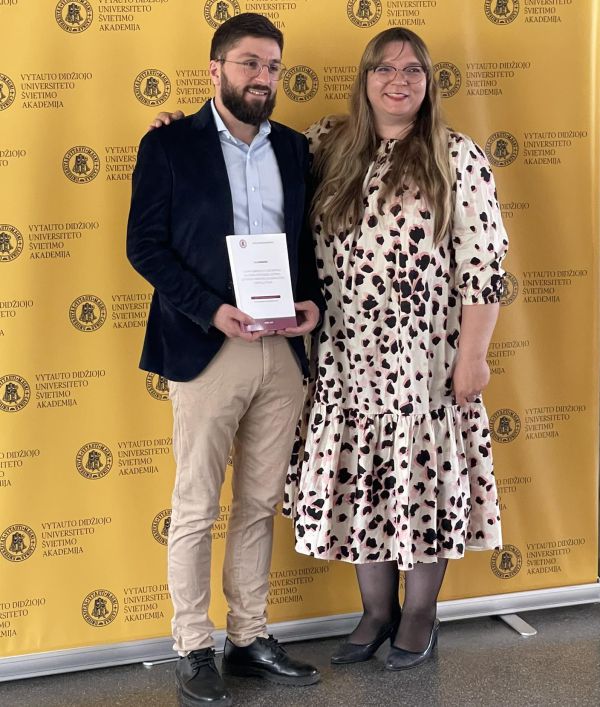
Congratulations to the new PhD student Giorgi Kobakhidze on the successful defence of his doctoral dissertation ,,Cultural Literacy Education for 2nd, 3rd and 4th Gymnasium Students: Cases of Multicultural Schools in Lithuania and Sakartvel” (Educational Sciences (S 007), scientific superviser – prof. dr. Daiva Jakavonytė-Staškuvienė), and on the acquiring PhD degree in Social Sciences in the field of Educational Sciences.
A brief annotation of the doctoral thesis is presented below:
Cultural literacy is a multifaceted and ambiguously defined concept. The theoretical part of the dissertation revealed the relevance of cultural literacy in the global world and reviewed the theoretical development of cultural literacy and presented the researcher’s hypothesis about the peculiarities of the cultural literacy education process in a multicultural school. In the part of the research methodology, the theoretical approaches of neopositivist and social constructivism are presented, the applied case analysis research strategy is presented and the research process and the similarities of the cases of the selected countries (Lithuania and Sakartvel) are described. In the part of the results of the scientific research, the data of the empirical studies conducted in the multicultural schools of Lithuania and Sakartvelo are presented, and the cases of both countries are analyzed according to the parameters of the cultural literacy study. The discussion part of the study discusses the peculiarities of the concept of cultural literacy and analyzes the repetition of cases. At the end of the dissertation, conclusions and recommendations are presented on how to develop the cultural literacy of students of II, III and IV gymnasium classes in a multicultural school.
Dissertation Defence Council:
Chair – prof. dr. Ona Monkevičienė (Vytautas Magnus University, Academy of Education, Social Sciences, Education S 007).
Prof. dr. Birutė Autukevičienė (Vytautas Magnus University Academy of Education, Social Sciences, Education S 007);
Assoc. prof. Dr. Emilija Sakadolskienė (Vytautas Magnus University, Academy of Education, Social Sciences, Education S 007);
Prof. dr. Roma Kriaučiūnienė ( Vilnius University, Humanities, Philology, H 004);
Prof. Ewa Filipiak, PhD (Kazimierz Wielki University, Social Sciences, Education S 007), Bydgoszcz, Poland.

Open Education Data for Both – Science and Education Practice
The Ministry of Education, Science and Sport, together with the Lithuanian Educational Research Association, organised the XXV Education Forum. This time, the participants addressed the topical but rarely discussed topic of educational data use in the education community. The theme of the forum was “Open Education Data: How to Use it More Effectively in Research and to Improve Educational Practice?“. The forum participants – specialists in educational sciences, researchers, representatives of educational and scientific institutions, education policy makers, data administration and analysis specialists were invited to a discussion.
Dr. Asta Ranonytė (Deputy Director of the National Education Agency (NEA)), briefly introduced the main issues of this education forum. “Do all of us working in the field of educational research know what information units, data, arrays of data are collected and stored?”. The keynote presentation of the Education Forum “NEA Data and Their Use” was given by Eduardas Daujotis (Director of the NEA Infrastructure Development Department, and Evaldas Bakonis (Head of the NEA Education Policy Analysis and Research Unit).
In the discussion participated Rimantas Žylius (Advisor to the Prime Minister of the Republic of Lithuania), dr. Arūnas Emeljanovas (professor of the Lithuanian Sports University), dr. Aleksei Iurasov (Senior Research Fellow at the Institute of Education, Vytautas Magnus University), dr. Agnė Brandišauskienė (Head of the Interdisciplinary Statistical Research Group at the Institute of Data Science and Digital Technologies, Vilnius University) and professor dr. Audronė Jakaitienė (Chief Research Fellow at the Institute of Data Science and Digital Technologies, Vilnius University).
Summing up the Forum, professor dr. Loreta Žadeikaitė (Chief Advisor of the Department of Studies, Science and Technology of the Ministry of Education, Science, and Sport) on behalf of herself and professor dr. Liudmila Rupšienė (the President of the Lithuanian Educational Research Association) thanked the initiators of the Forum, the organisers, the speakers and the participants.
For more information : https://www.svietimonaujienos.lt/atviri-svietimo-duomenys-ir-mokslui-ir-ugdymo-praktikai/
